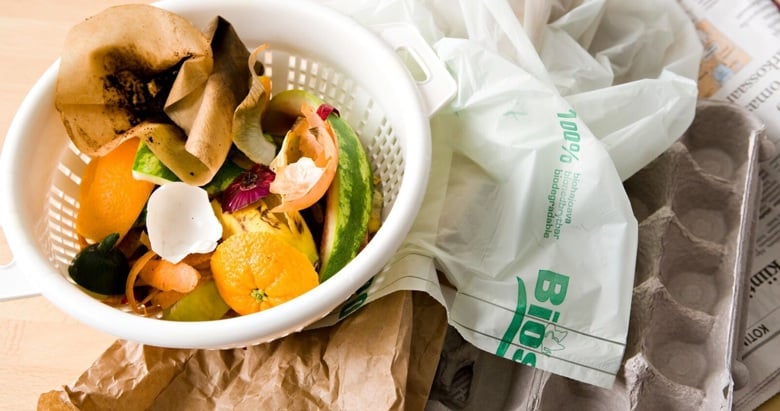Biowaste

Biowaste is decomposing and compostable food and kitchen waste. Easily decomposed fibrous materials can also be sorted into biowaste. Biowaste collection expands to all residential properties in the HSY area during 2023–2024. More information available on this page.
Sort into biowaste
- fruit and vegetable peels
- leftover food
- fish bones, bones
- solidified grease
- egg cartons
- coffee and tea grounds, tea bags and filter papers
- soft paper, such as kitchen towels, napkins and tissues
- plant parts and wilted flowers
- small amounts of raking waste
- wood-based litter from pet cages (e.g. sawdust and pellets)
Pack biowaste preferably into a paper bag
For a free biowaste bag, use a flour bag, a cereal box or a newspaper. You can also use store-bought paper or biodegradable plastic bags.
An ordinary plastic bag cannot be used because it will not decompose.
Where to take biowaste?
- The biowaste container of the property. Biowaste is currently collected in all housing companies with at least five apartments, as well as on other properties where more than 10 kilograms of biowaste is generated weekly. During 2023–2024, collection will be expanded to all properties.
- A composter intended for food waste. Composting is voluntary alternative for biowaste collection.
The new waste management regulations will expand the separate collection of biowaste to residential properties of all sizes in the Helsinki Metropolitan Area and Kirkkonummi during the years 2023–2024. Behind the attached links you will find more detailed explanations about the importance of sorting biowaste and information about sorting options.
Biowaste for properties with 1 to 4 apartments,
Waste Management Regulations,
Composting on the property,
We produce soil and biogas from biowaste
Sorting biowaste is important because it is the only way to recover its nutrients and renewable energy. We produce biogas and nutrient-rich compost soil from biowaste at our treatment plant, the Ämmässuo eco-industrial centre.